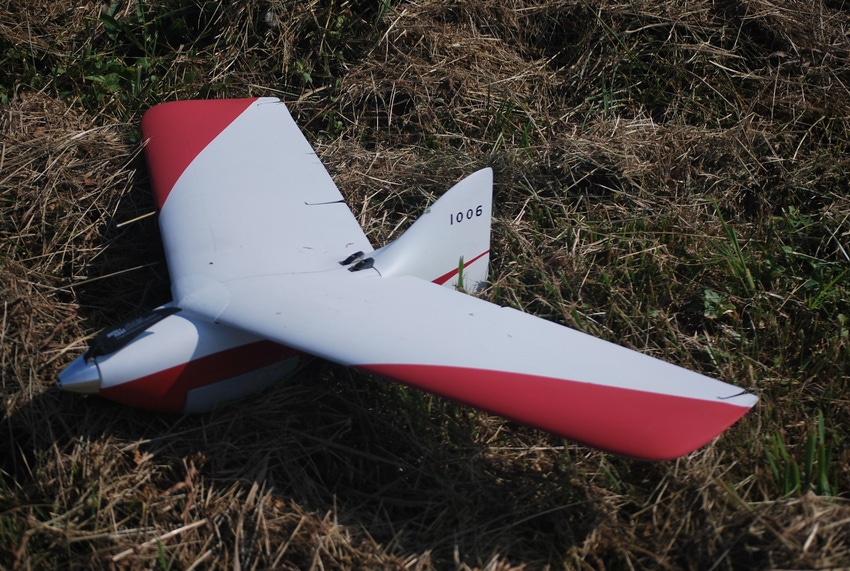
Research on using unmanned aerial vehicles in North Carolina agriculture will begin as soon as North Carolina State University receives approval from the Federal Aviation Administration to use the vehicles, according to Rob Austin, Extension geographic systems specialist.
Speaking at the Blackland Farm Managers Tour in Plymouth on Aug. 6, Austin said the approval or certificate of authorization to fly UAVs should be a formality and should be granted soon, which will allow N.C. State to go forward with UAV research and begin preliminary flights.
UAV research in North Carolina is being managed by N.C. State’s NextGen Air Transportation (NGAT) Center on the Centennial Campus in Raleigh. The vehicle to be used in the research is Vireo, which is barely larger than a football.
In their research work, N.C. State scientists will put sensors on the Vireo which will allow the UAV to take pictures of crops throughout the growing season. The sensors will include both a multi-spectral camera which enables the vehicle to capture the visible range of light, but infrared as well, allowing capture of data on different vegetative indices, according to Austin.
“We’re also going to fly a thermal camera,” Austin says. “The idea there is to measure crop canopy temperature and look back on how that might relate to soil moisture.”
Researchers plan to fly multiple missions throughout the year, monitoring crop progress throughout the year, using existing trials. “We plan to fly at multiple heights to get a larger spatial extent,” Austin says. “Often with the other systems, such as satellites or manned aircraft, you are limited with ground resolution. With this type of system, you can control that. You can have really high ground resolution with these sensors.”
At the end of the season, researchers will try to validate the date and take tissue tests to see how well the vegetative indices match what the actual crop has within it. “We will look at soil moisture and at the end of the year, look at how all of this relates to yield,” Austin says.
While research on UAVs in agriculture is expected to get the green light from FAA, Austin says commercial use is still on lockdown and approval isn’t expected anytime soon. “If it involves making money, FAA is going to say ‘no,”’ Austin says.
“The No. 1 question I have been getting from farmers recently is ‘if I buy the drone, if I fly it over my land and I go ahead and make some management decisions based on that, am I breaking the law? It’s a very fine line, but I expect FAA will probably come in and say this is a commercial operation and not allow it.”
Austin says it will be awhile before commercial use of UAVs will be allowed, but being able to do research is a good first step in incorporating the technology into North Carolina agriculture.
About the Author(s)
You May Also Like






